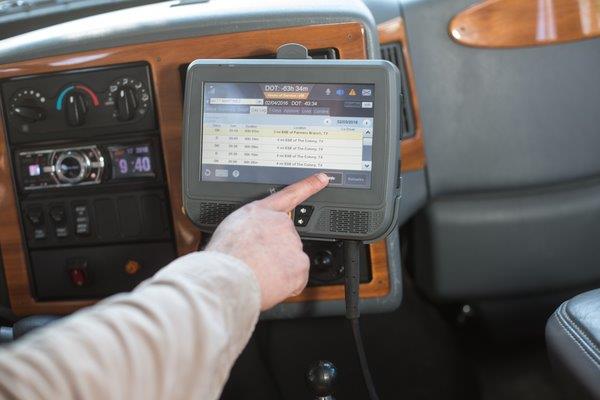Delayed regulation could have threatened entire ELD mandate, says CTA president
Provinces and territories will focus on education and awareness in the initial rollout of mandated ELDs for federally regulated carriers, leading up to June 2022. But the leader of Canada’s largest trucking association doesn’t want anyone to mistake that with a delay in the regulation itself.
“From a regulatory perspective, there is a huge difference between a call for a delay in the coming-into-force date and the development of a progressive enforcement strategy,” says Stephen Laskowski, president of the Canadian Trucking Alliance (CTA).

Pressures for delays of some sort mounted in recent months because Canada still lacks any certified electronic logging devices (ELDs). Unlike the U.S., which allows suppliers to self-certify the devices they sell, the Canadian rules require a recognized third party to certify that equipment meets underlying technical standards. The approach is meant to ensure data can’t be manipulated to change things like recorded driving time.
FPInnovations was identified as the first certifying body as recently as late October.
But any move to actually delay the regulation itself could have put the entire ELD mandate in jeopardy, Laskowski says.
He lists a series of steps that could have been triggered by delaying the date when the regulation comes into force: more consultations; a cost-benefit analysis; reviews by the Privy Council, Treasury Board Secretariat, and Department of Justice; publication, reviews and comments as the rules moved once again from Canada Gazette Part 1 to Canada Gazette Part 2.
“In short, a delay in the implementation date could have set forth a process where we would not have delayed the ELD mandate. We may have never [have seen] it again,” he says.
With June 12, 2021 still holding as the effective date for the regulation, the mandate will stand.
Progressive enforcement
Individual provinces and territories will ultimately define what their progressive enforcement models will look like in the coming year. But the Canadian Council of Motor Transportation Administrators (CCMTA) has said only that it will be “without penalties”.
“It allows a bit of a runway for suppliers and the industry to prepare for the ELD mandate,” Laskowski says of the year-long timeline.
The CTA is recommending a plan that differentiates carriers that run with paper logbooks and those that are using uncertified ELDs, he says. As the year rolls out, it calls for steps that begin with education and awareness, but progress to formal notifications through inspection reports and carrier profiles, and then options for warning letters, and eventually full enforcement by June 2022.
“Our enforcement plan is reflective of devices coming onto market and allowing carriers enough time to install them,” Laskowski says.
“There is nothing stopping a carrier today from reaching out to the various ELD vendors to do their due diligence,” he adds.
“There are many, many of them now going through the system, so it’s just a matter of time before the market has a great number of vendors, choices out there for the industry.”
Have your say
This is a moderated forum. Comments will no longer be published unless they are accompanied by a first and last name and a verifiable email address. (Today's Trucking will not publish or share the email address.) Profane language and content deemed to be libelous, racist, or threatening in nature will not be published under any circumstances.
More corporate scare mongering from the CTA, masquerading as the public interest. Third party verification has never been necessary but the industry heavy hitters want to control the process for their own advantage, which is to drive out competition (read: small carriers and independents) and reap the benefits of the coming capacity crunch. As was seen in the US, full e-log usage will reduce capacity and raise rates so the organ grinders are dictating that Mr. Laskowski loudly declare that the sky might fall if things don’t happen as they wish. There is no rational basis for thinking that the mandate will not go forward, except possibly on a more reasonable and practical time frame, given the hurdles and hoops certain industry manipulators have managed to install along the way.
-
More reasons to keep my older ELD exempt trucks running.
How wee gone have log books to prove to CRA for our meal credit.
If all trucking companies had to pay time and a half after 10 hours and double time after 13 hours on duty. We would not need E logs to f we had parking at all receiver’s and shipping companies with bathroom and electric plugs and paid for all hours worked as a trade.